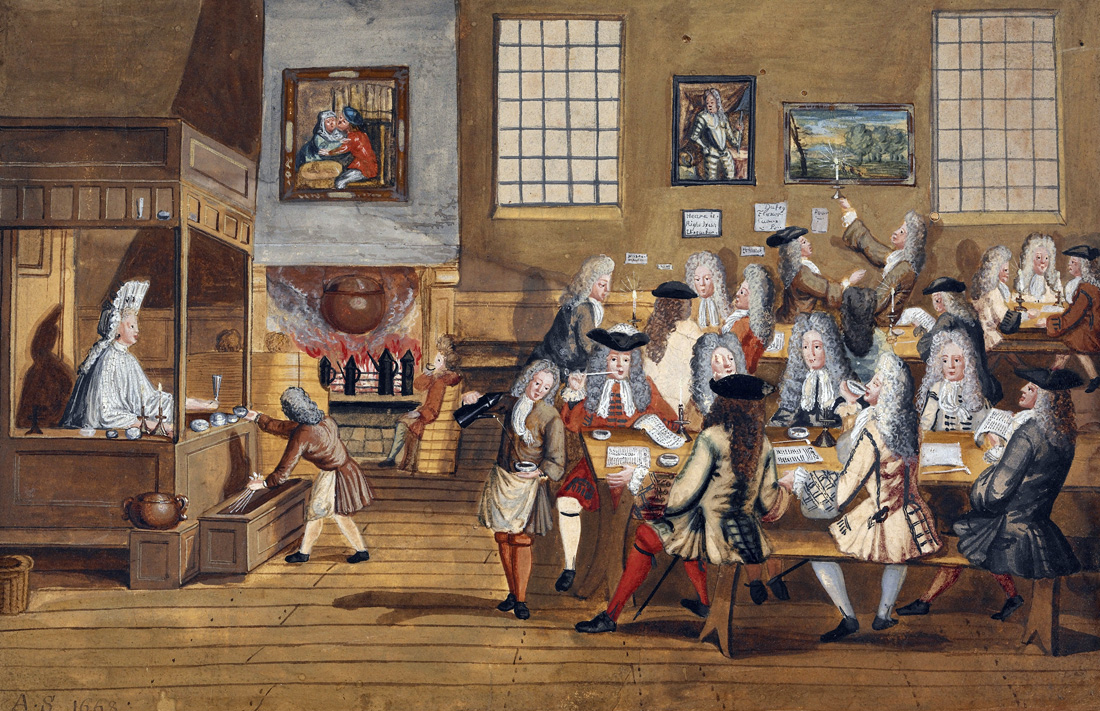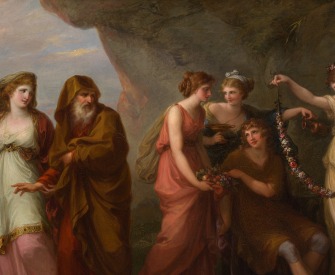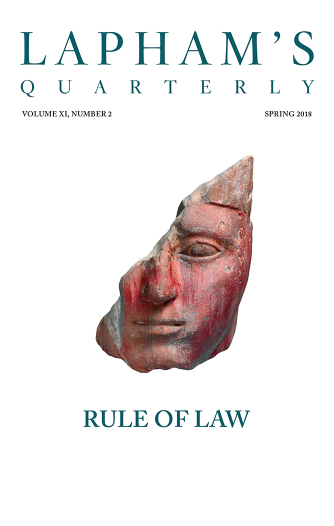It is a luxury to be understood.
—Ralph Waldo Emerson, 1831Redefined
Ambrose Bierce reinterprets the dictionary.
Absurdity, n. A statement or belief manifestly inconsistent with one’s own opinion.
Backbite, v.t. To speak of a man as you find him when he can’t find you.
Conversation, n. A fair for the display of the minor mental commodities, each exhibitor being too intent upon the arrangement of his own wares to observe those of his neighbor.
Dictionary, n. A malevolent literary device for cramping the growth of a language and making it hard and inelastic. This dictionary, however, is a most useful work.
Eulogy, n. Praise of a person who has either the advantages of wealth and power, or the consideration to be dead.
Fool, n. A person who pervades the domain of intellectual speculation and diffuses himself through the channels of moral activity. He is omnific, omniform, omnipercipient, omniscient, omnipotent. He it was who invented letters, printing, the railroad, the steamboat, the telegraph, the platitude, and the circle of the sciences. He created patriotism and taught the nations war—founded theology, philosophy, law, medicine, and Chicago.
Grammar, n. A system of pitfalls thoughtfully prepared for the feet for the self-made man, along the path by which he advances to distinction.
Harangue, n. A speech by an opponent, who is known as a harangue-outang.
Interpreter, n. One who enables two persons of different languages to understand each other by repeating to each what it would have been to the interpreter’s advantage for the other to have said.

Interior of a London coffeehouse, c. 1700.
Justice, n. A commodity which in a more or less adulterated condition the state sells to the citizen as a reward for his allegiance, taxes, and personal service.
Koran, n. A book which the Mohammedans foolishly believe to have been written by divine inspiration, but which Christians know to be a wicked imposture, contradictory to the Holy Scriptures.
Language, n. The music with which we charm the serpents guarding another’s treasure.
Mendacious, adj. Addicted to rhetoric.
Nonsense, n. The objections that are urged against this excellent dictionary.
Oratory, n. A conspiracy between speech and action to cheat the understanding. A tyranny tempered by stenography.
Peripatetic, adj. Walking about. Relating to the philosophy of Aristotle, who, while expounding it, moved from place to place in order to avoid his pupil’s objections. A needless precaution—they knew no more of the matter than he.
Quotation, n. The act of repeating erroneously the words of another. The words erroneously repeated.
Rostrum, n. In Latin, the beak of a bird or the prow of a ship. In America, a place from which a candidate for office energetically expounds the wisdom, virtue, and power of the rabble.
Slang, n. The grunt of the human hog (Pignoramus intolerabilis) with an audible memory. The speech of one who utters with his tongue what he thinks with his ear, and feels the pride of a creator in accomplishing the feat of a parrot. A means (under Providence) of setting up as a wit without a capital of sense.
Telephone, n. An invention of the devil which abrogates some of the advantages of making a disagreeable person keep his distance.
Ultimatum, n. In diplomacy, a last demand before resorting to concessions.
Vote, n. The instrument and symbol of a freeman’s power to make a fool of himself and a wreck of his country.
Wit, n. The salt with which the American humorist spoils his intellectual cookery by leaving it out.
X. In our alphabet, being a needless letter has an added invincibility to the attacks of the spelling reformers, and like them, will doubtless last as long as the language. “X” is the sacred symbol of ten dollars, and in such words as Xmas, Xn, etc., stands for Christ, not, as is popularly supposed, because it represents a cross, but because the corresponding letter in the Greek alphabet is the initial of his name—Χριστός. If it represented a cross it would stand for St. Andrew, who “testified” upon one of that shape. In the algebra of psychology x stands for Woman’s mind. Words beginning with “X” are Grecian and will not be defined in this standard English dictionary.
Year, n. A period of 365 disappointments.
Zeal, n. A certain nervous disorder afflicting the young and inexperienced. A passion that goeth before a sprawl.

Ambrose Bierce
From The Devil’s Dictionary. Having dropped out of military school and worked as a soda jerk, Bierce in 1861 enlisted in the Indiana Volunteers, fighting at Shiloh and Chickamauga before being wounded at Kennesaw Mountain in 1864. He moved to San Francisco, where he became known for his wit while editing and writing for magazines and newspapers. In 1913 he wandered off to Mexico during Pancho Villa’s revolution and was never heard from again.




